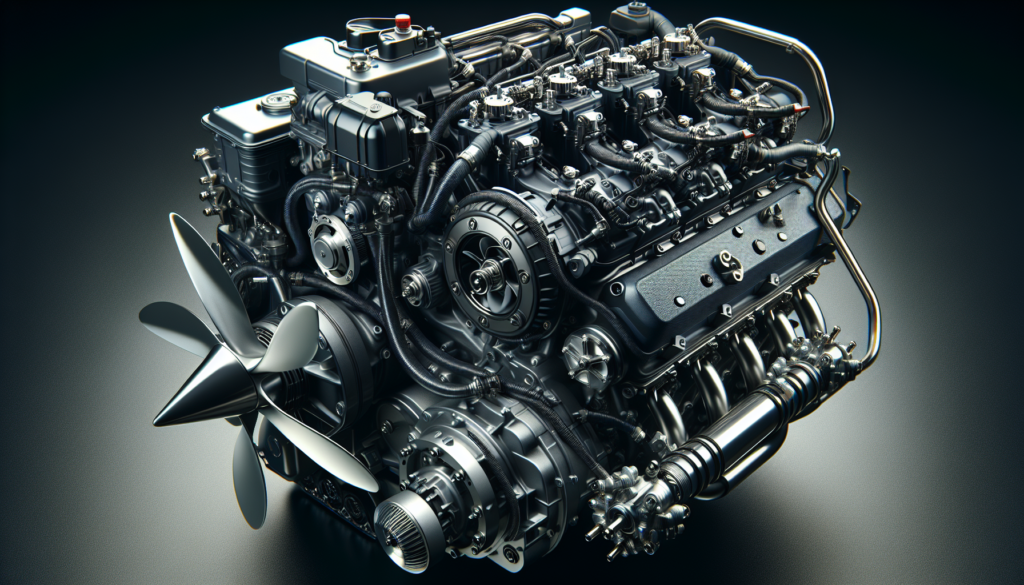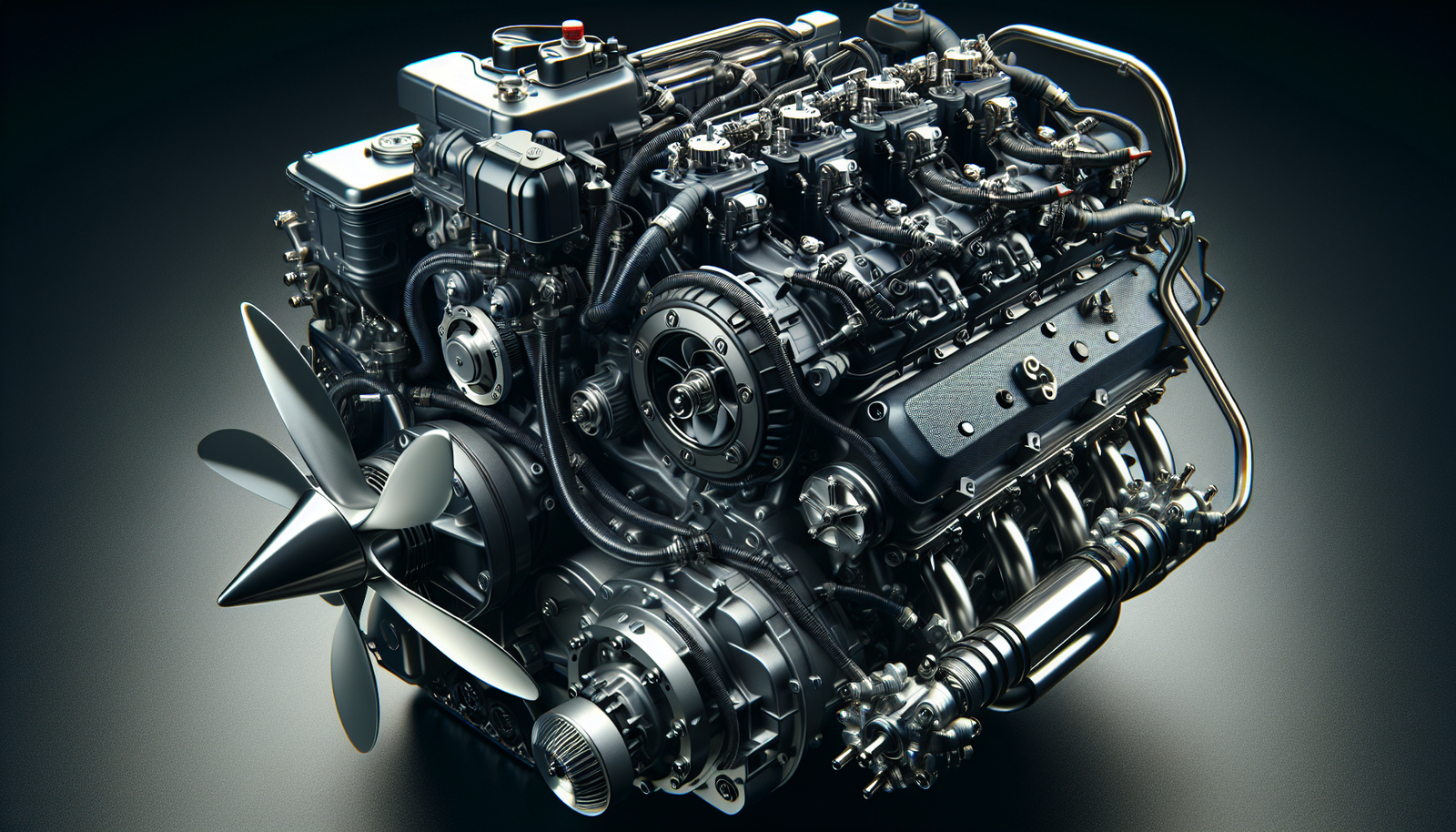If you’ve ever pondered on sailing into the sunset, engaging in a few leisurely water sports or even going fishing, you’ve undoubtedly realized the critical importance of a reliable boat engine. “What to Look for in a reliable boat engine for recreational boating” provides a comprehensive guide on choosing the right engine that meets your specific needs. Whether it’s speed you’re after, or reliability in all sorts of weather conditions, this article arms you with the necessary insights to make the right decision.

Understanding Recreational Boating and Its Needs
Recreational boating, as you might imagine, refers to boating that’s done for pleasure rather than for work or transport. It’s a popular pastime around the globe, with millions of people participating each year. Recreational boating activities can range from sailing, fishing, water skiing to simply cruising on the water with loved ones.
Understanding recreational boating
Whether for adrenaline-fueled activities or a leisurely cruise, recreational boating offers a unique avenue for relaxation and fun. However, as enjoyable as it may be, recreational boating comes with its own set of requirements. Above all, surely, is safety – followed closely by reliability and performance. Your boat must be able to comfortably and safely carry you and your passengers, and a major component of this comes down to your boat’s engine.
Different types of recreational boating
From sailing and small powerboats to fishing and cruising vessels, each form of recreational boating has unique needs. Sailing enthusiasts rely on the winds, yet still need a reliable engine for when the breezes fail. Powerboat operators, on the other hand, depend entirely on their engines for propulsion. Every type of recreational boating demands an engine that can withstand the rigors of that specific activity.
The impact of recreational boating on engine choices
Your preferred type of recreational boating significantly influences the kind of engine you’ll require. Variables such as the weight and size of your boat, average cruising speed, and the vessel’s purpose (ranging from water sports to long-distance cruising) all go into picking the right engine.
Importance of A Reliable Boat Engine
For recreational boating to be enjoyable, a reliable engine is an absolute necessity. This goes beyond mere performance- the engine in your boat can affect everything from safety to the overall boating experience.
How a reliable engine contributes to safety
An unreliable engine can pose numerous dangers. Imagine being stuck in the middle of a lake or miles off the coast with a broken-down engine! A reliable boat engine ensures that you’re able to return to shore safely, while also providing the correct propulsion for manoeuvrability in tricky situations.
Economic factors of a reliable engine
A reliable engine is also an economic choice. Regular breakdowns mean constant repair jobs, which can quickly become pricey. Frequent trips to the repair shop will also subtract from your time out on the water. In the long run, investing in a good, reliable engine can save you substantial amounts of time and money.
Impact on recreational boating experience
Lastly, a reliable engine significantly enhances your boating experience. It’ll allow you the freedom to focus on enjoying your time on the water rather than worrying about when things might go wrong.
Engine Type Considerations
There are three types of engines typically considered in recreational boating: Inboard, Outboard, and Diesel vs Gas engines. Each one has its advantages and disadvantages.
Advantages and disadvantages of inboard engines
Inboard engines offer several perks. These are usually sturdier, providing longevity and high horsepower, making them perfect for larger boats and longer trips. However, they do come with a few drawbacks. Inboard engines are harder to access and maintain due to their placement within the boat’s hull, not to mention they can be more expensive than their outboard counterparts.
Advantages and disadvantages of outboard engines
Outboard motors, whether they are two-stroke or four-stroke engines, are perfect for smaller boats. Their placement on the boat’s exterior makes access and maintenance easy. They’re also usually more affordable than inboard options. However, they might not provide the same powerful performance as an inboard engine.
Comparing Diesel and Gas Engines
When comparing diesel and gas engines, diesel ones tend to be more fuel-efficient and generally require less maintenance, making them popular for long-distance or regular boating. However, they’re also typically more expensive to purchase and repair—while gas engines, on the other hand, are cost-effective but not as efficient or long-lasting.
The Horsepower Requirement
Your engine’s horsepower will greatly impact your boat’s performance. Too much or too little can lead to inefficient running.
Factors affecting horsepower requirement
Several aspects factor in when determining the horsepower you need. These include the boat’s weight and size, your average speed, and the activities you plan on doing, such as water skiing or simply cruising.
Calculating required horsepower
It is possible to calculate the horsepower required for your boat based on these factors. A general rule of thumb is that for every 1,000 lbs of weight (including passengers and gear), you’ll need 25-40 horsepower. But, of course, this is a guesstimate and will also depend on your other individual needs.
Impact of over and underpowered engines
Engines that are too powerful can quickly become fuel-inefficient, not to mention it can be dangerous to have more power than you can safely handle. Conversely, underpowered engines can strain under the weight, leading to faster wear and tear.

Engine Size and Weight
The physical dimensions of your engine count not only for fit within your boat but also for performance and efficiency.
How size and weight affect boat performance
A too-large engine can cause the boat to sit lower in the water, impacting performance and possibly safety. A too-heavy engine can have much the same effect. On the other hand, a too-light engine might not have the horsepower you need for optimal performance.
Best ways to determine size requirement, weight restrictions
Your boat manufacturer will provide recommendations for both the size and weight of the engine that’s ideal for your boat. Adhering to these recommendations will help guarantee both safety and performance.
Fuel Efficiency and Range
Don’t forget about fuel efficiency when choosing an engine. It can significantly impact your running costs and how far you can travel on a tank of fuel.
Understanding the importance of fuel efficiency
Having a fuel-efficient engine will not only save you money but also extend the range of your boat. Both elements can significantly enhance the enjoyment of your recreational boating experience.
Calculating fuel efficiency and range
To determine your engine’s fuel efficiency, you’ll need to know how much fuel it uses per hour and what speed you typically cruise at. From this, you can figure out how many miles you can get per gallon. This calculation, along with knowing your fuel tank’s capacity, will let you work out how far you can travel on a full tank of fuel.
Tips for improving fuel efficiency
There are several ways you can improve your boat’s fuel efficiency. This can include regular engine maintenance, not carrying unnecessary weight, and maintaining an optimal cruising speed.
Maintenance and After-Sale Service
Maintenance and after-sale service are significant aspects to consider when purchasing your boat engine. They can impact the overall cost and reliability of your power source.
Importance of easy maintenance
An engine that’s easy to maintain will be more likely to remain reliable for longer. This means less time and money spent at the repair shop.
Role of after-sale services in reliability
Good after-sale service from your engine manufacturer can mean the difference between a minor inconvenience and weeks waiting for repairs. The availability of parts, knowledgeable service staff, and good warranty conditions can all contribute to your engine’s reliability.
Checklist for maintenance and after-sale services
A maintenance and after-sale service checklist might include aspects like ease of access to the engine for maintenance, the manufacturer’s reputation for service, and the terms of the warranty.
Brand Reputation and Reviews
When purchasing an engine, the brand’s reputation and reviews from other users are crucial indicators of its quality.
Role of brand reputation in reliability
Brands with good reputations have usually earned them through years of producing reliable, durable engines. Choosing an engine from a proven brand can give you peace of mind regarding your investment.
How to find authentic engine reviews
There are several ways to find reviews on boat engines. These can include boating forums, product review websites, and asking other boat owners. Just remember to look for broad trends in reviews rather than getting hung up on one or two outliers.
Weighing brand reputation against other factors
While brand reputation is important, it isn’t everything. You should weigh it against other considerations like price, warranty, and the specific needs of your boat and intended usage.
Price and Warranty
Price is obviously a significant consideration when purchasing an engine. However, it’s important not to forget about the warranty as well, as it can have a big impact on your overall cost.
Balancing cost with reliability
While a higher-priced engine might initially seem more expensive, it could end up being more cost-effective in the long run if it’s more reliable and lasts longer. Similarly, a cheap engine might end up costing you more if it breaks down frequently or doesn’t last.
Importance of warranty and what to look for
A good warranty can save you a lot of money if something goes wrong with your engine. Look for warranties that cover a wide range of possible faults and that last for a reasonable amount of time.
Potential additional costs associated with boat engines
Remember that the purchase price isn’t the only cost associated with a boat engine. You’ll also need to consider things like fuel, maintenance, and possible repair costs.
Environmental Impacts
With growing concerns about our environment, it’s more important than ever to consider the impact your recreational boating might have.
How different engines affect the environment
Engine emissions can have a significant impact on the environment. Diesel engines, for example, can emit high levels of particulates, while older 2-stroke outboard engines can release unburned fuel into the water.
Understanding emission regulations
Various regulations are in place around the world to limit the emissions from boat engines. Be sure you understand these regulations and ensure your engine complies to avoid fines and contribute to a healthier environment.
Choosing eco-friendly engines
Eco-friendly engines are those that are designed to minimise their impact on the environment. This can include engines that use clean-burning fuel, are fuel-efficient, or even electric engines. Research and consider these options in your quest for an ideal and responsible unit.
In conclusion, finding a reliable boat engine for recreational boating involves careful consideration of many factors, from type and horsepower to environmental impact. We hope this guide provides you with the knowledge to make the best-informed decision on your boating adventures. Get ready to set sail!


